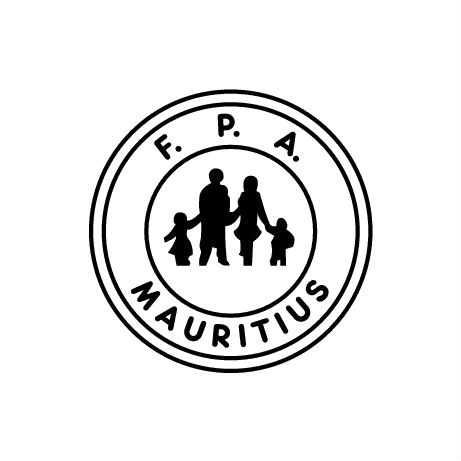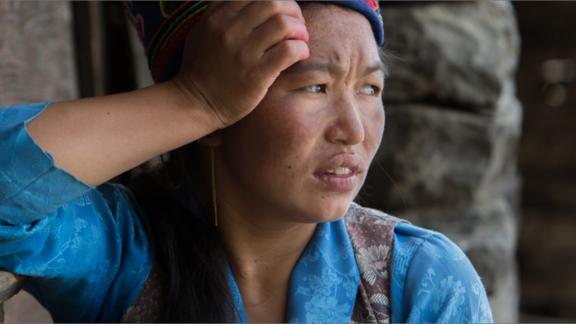

| 31 March 2016
Family Guidance Association of Ethiopia
Ethiopia, the second most populous country in Africa, and the tenth most populous in the world, has enormous sexual and reproductive health (SRH) challenges as the statistics demonstrate. The Family Guidance Association of Ethiopia (FGAE) celebrated its 50th anniversary in 2015. It has a broad reach which focuses on providing poor and marginalized populations with family planning, safe abortion care, maternal and child health care, prevention and treatment of sexually transmitted diseases (STIs) including HIV and AIDS and associated opportunistic infections. In the shape of permanent clinics, mobile facilities, community-based services (CBSs), FGAE has numerous service points. Staff, backed by over thousands volunteers, hundreds of peer educators and of community-based distributors (CBDs). There’s no disguising the fact that achieving proper SRH amongst the Ethiopian people is an exhausting uphill struggle. FGAE has the will, the determination and the backing to fight for people’s rights and welfare. Access is key to the Member Association’s activity, and it works extensively with young people to inform, educate and provide essential SRH services. FGAE also runs special projects targeted at particularly vulnerable individuals and groups: street children, people living with HIV and AIDS, sex workers, and young migrants in 8 of the 11 principal Regions in Ethiopia. FGAE partners with government, with non-governmental organisations(NGOs) including the Ministry of Health, the Ministry of Women, Children and Youth, UNFPA-Ethiopia, CARE-Ethiopia, DKT-Ethiopia, Dawn of Hope, the Ethiopian Women’s Lawyer Association, and a broad spectrum of HIV and AIDS-related operations. Private sector partners include Betezata Hospital and Janmeda/medical bio laboratories, and donors to the Member Association’s work include the Royal Netherlands Embassy, the Packard Foundation, IPPF’s Japan Trust Fund, USAID/CDC and Irish Aid. Website: www.fgaeet.org

| 31 March 2016
Family Life Association of Eswatini (formerly Swaziland)
The Family Life Association of Eswatini was incorporated as a Non-Governmental Organization in 1979. Since registration, FLAS has championed programs to promote access to quality, pro-poor, rights-based, gender equitable, youth-focused, and non-discriminatory SRH and rights information and services. Motivated by its vision, “to see a Swazi society with fully protected, supported and respected SRH and rights”, FLAS operates in the four regions of Eswatini. FLAS operates 3 private clinics, and among its flagship programs empower young people to access their Sexual Reproductive Health rights through the delivery of Comprehensive Sexuality Education (CSE), Life Skills Education (LSE), quality integrated SRH and HIV services in communities, and through mobile facilities. The Organisation is a member of numerous technical groups and networks in Eswatini, a member of the SRH Steering Committee, the Gender Consortium, and the Male Circumcision Task Force. We also support the Ministry of Health in rolling out clinical and community health services. Key Activities: Delivery of SRH information and CSE through Peer Education Comprehensive Sexuality Education (CSE) which is also referred to as Life skills education in Eswatini, is a right-based and Gender Focused approach to sexuality education and SRH for both in and out of school young people. It remains key for vulnerable youth (in and out of school) to make choices including the ability to reflect and make informed decisions, communicate and negotiate effectively, and demonstrate assertiveness. All CSE/LSE sessions are delivered by trained peer educators who conduct reviews quarterly in the communities and schools. Mobilization of Adolescents and youth is conducted in groups of 25 – 40 young people, each group using the 12-session LSE manual. Mobile outreach for very young adolescents FLAS provides mobile clinical services which include delivery of integrated SRHR services as per the essential service package articulated in the Quality Improvement Package for AYSRHR. A team of service providers makes routine visits to targeted communities to provide clients with integrated SRHR services. Demand Creation: Mobile outreach service delivery schedules are highly publicized in the communities. Scheduled visits are always advertised in advance at the outreach site. In addition, peer educators raise awareness of SRH-HIV and alert the community to the timing of mobile clinic visits. Creating an Enabling Environment Adapting service delivery models to reach young people effectively is critical. However, a supportive environment is an important precursor to service uptake among young vulnerable people. FLAS works to support a conducive environment through changing attitudes and developing awareness amongst community leaders, religious leaders, parents, guardians, and legislators. Contacts Contact: +268 2505 3082 (Company direct-line) Twitter: https://twitter.com/FLAS79 Facebook: https://www.facebook.com/flas79/ Instagram:https://www.instagram.com/flas_eswatini/?fbclid=IwAR195kkMKqIIzKL-r_QWI8cYNdIDQQke_oc4Zb290cnRR2yjq5Lv4-GN6Mg

| 31 March 2016
Family Planning Association of Malawi
When it was founded in 1999, the Family Planning Association of Malawi (FPAM) focused on providing family planning services. As the organization has evolved, it has both refined and expanded its operation. Today, FPAM targets young people primarily, and reaches out to under-served rural communities. As a result, it operates 64 service points, including 53 mobile sexual and reproductive health (SRH) facilities and 4 static clinics. Its community-based distributor/services (CBDs/CBSs) profile is also very strong with 65 additional delivery points. As ever with IPPF Member Associations, the mix of outlets and approaches is very much led by the particular demographic and geographic needs of the country. FPAM also provides youth-friendly SRH information, education and behaviour change communication materials to young people at 4 youth centres, and through schools. Peer educators use group discussions, theatre performances, publications and audio-visual materials produced by community reproductive health promoters to pass on the message about good SRH practice and access to resources. The distribution of contraceptives, pregnancy testing, the diagnosis and treatment of sexually transmitted infections (STIs) and voluntary counselling and testing (VCT) for HIV and AIDS are core to FPAM’s clinic activity. For its successful operation, the organization depends on a team of 46 full-time staff and over 600 volunteers. Over the years, FPAM has forged partnerships with health, family and youth departments in government, to advocate forward-thinking national SRH policies. It works with a variety of non-governmental organisations (NGOs) including the Malawi Girl Guides Association and Banja La Mtsogolo. Financing support comes from UNFPA, IPPF’s Japan Trust Fund, the Japanese Organization for International Cooperation in Family Planning (JOICFP), UNICEF, National AIDS Commission, GTZ, and Youth Incentives. FPAM also networks with other SRH-focused groups, particularly in the fields of HIV and AIDS and youth issues. Contacts Website: www.fpamalawi.org Facebook: https://www.facebook.com/FPAMalawi/

| 31 March 2016
Fianakaviana Sambatra - Madagascar Association
Relative to much of Africa, Madagascar has high levels of contraceptive use, but high birth rates coupled with endemic poverty and limited government-led sexual and reproductive health (SRH) provision mean that child mortality and maternal death figures are high. Fianakaviana Sambatra (FISA) has been fighting since 1967 to improve the nation’s SRH through advocacy, education and direct service provision. Currently, it runs 67 service points, including: 11 permanent clinics, 3 mobile units and 12 community-based services (CBSs), across 6 of the country’s regions. FISA works with 5 associated clinics and 29 private practitioners. FISA has 70 full-time staff, 184 peer educators, and a youth action movement made up of 42 members. FISA delivers a wide range of services: family planning, prevention and management of HIV and AIDS and the provision and dissemination of comprehensive SRH materials. FISA has used its on-the-ground experience to advise government on national SRH policy. It has partnered with the Ministry of Health, Family Planning and Social Protection, and the Ministry of Youth to advocate for a concerted approach to resolving the critical SRH issues currently facing the country. At the same time, it works with non-governmental organizations (NGOs) such as Marie Stopes International, and the ASSONG coalition of NGOs. FISA receives financial support from UNFPA, the Big Lottery Fund, Amélioration de la Qualité De Services, the EU and IPPF’s Japan Trust Fund. It’s also closely connected to other organizations promoting SRH rights across the country and the region.

| 31 March 2016
Lesotho Planned Parenthood Association
One of IPPF’s central beliefs is that processes and approaches need to be adapted to meet the specific needs of a country. In Lesotho, a country with one of the highest HIV prevalence rates in the world, LPPA is very active in finding new ways to address neglected needs. LPPA provides a comprehensive range of sexual and reproductive health including: family planning, the management of sexually transmitted infections (STIs), screening for cancers of the reproductive system, the distribution of contraceptives and emergency contraceptives, pregnancy testing, post-abortion care, voluntary counselling and testing (VCT) and the management of infections. Clients are referred to other centres for CD4 tests and ARV treatment. LPPA reaches out to the communities it serves through 47 service points: 10 permanent clinics, 9 private providers, 30 associated agencies, 90 peer educators and 14 community-based distributors (CBDs). There are 54 permanent staff who are supported by over 200 volunteers. An estimated 75% of LPPA's clients are poor, marginalized, socially excluded and/or under-served. Target groups include cattle herders, prisoners, rural populations, factory workers, university students, police trainees and people living with HIV and AIDS. LPPA targets out-of-school children, and disseminates SRH information through drama, puppetry, sports for life, and facilitated discussions. Other education programmes include health talks, workshops, performances and radio and TV shows. In advocacy, LPPA reaches out to teachers, religious leaders and government leaders to promote favourable approaches to, and legislation on, SRH. LPPA has influential partnerships with government health and population departments, and it partners with major non-governmental organizations (NGOs). Donors include Irish Aid, UNDP, the Japan Trust Fund, and IPPF’s Korea Africa Fund. The Member Association has strong linkages with other organizations across the country, particularly in relation to HIV and AIDS. Website: www.lppa.org.ls

| 31 March 2016
Mauritius Family Planning & Welfare Association
Set up in 1957, the Mauritius Family Planning & Welfare Association (MFPWA) was one of the earliest organizations in Africa focusing on family planning issues. As the nation struggled to find a way to address pressing population issues, a group of advocates formed MFPWA and started to provide services directly to women. Today, the organization caters to the sexual and reproductive health (SRH) needs of the whole community. It also has particular strands of activity relating to specific groups including sexually abused children, elderly people and marginalized populations on Rodrigues Island. Through 2 permanent facilities, and a private sector-supported daycare centre, MFPWA’s 15 staff and 550 volunteers deliver services including family planning, the prevention and management of HIV and AIDS through voluntary counselling and testing (VCT), support for people living with HIV/AIDS, infertility management, antenatal and post-natal care, post-abortion care, the diagnosis and treatment of sexually transmitted infections (STIs) and screening for cancers of the reproductive systems. The Member Association also operates peer-educator-led outreach programmes targeting hotels, export processing zones and popular tourist hot spots. MFPWA has played a critical role in promoting the integration of family life education into the national school curriculum and its powerful, informed advocacy has been influential in shaping government legislation on SRH, particularly in relation to HIV and AIDS. MFPWA partners with and advises government departments which address health, quality of life, women’s rights, child development, family welfare, social security and youth and sports. MFPWA works with a large number of non-governmental organizations (NGOs) including the Mauritius Council of Social Service, the Mauritius Alliance of Women, PILS (People living with AIDS), SOS Pauvrete, the National Women’s Council, the Senior Citizen Council and Link. Donors include the Indian Ocean Commission and UNFPA. Website: http://mauritiusfamilyplanning.com








